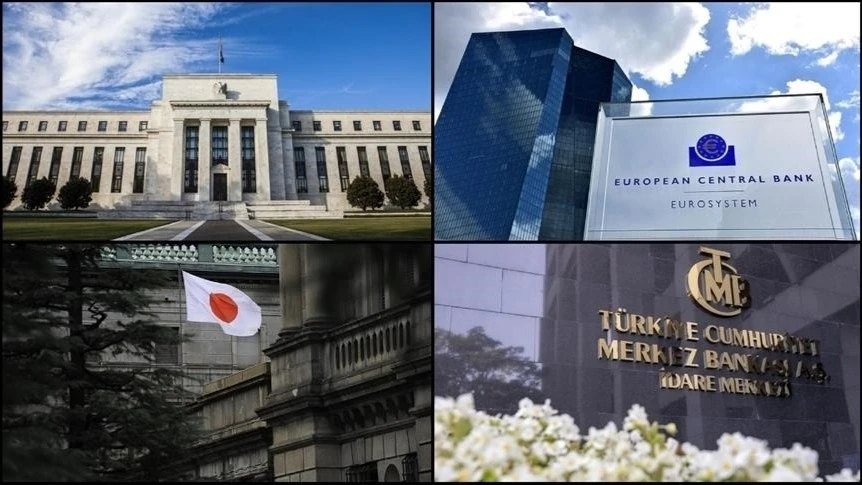World’s central banks start a year with policy adjustments

The world’s central banks started the new year with policy adjustments as the global fight against inflation continues.
Global economies are changing policies to adapt to new conditions while recession risks persist.
President Donald Trump’s protectionist trade policies and tariff threats lead major central banks to be more cautious.
The Fed kept its rate unchanged at 4.25 percent to 4.50 percent, within estimates, citing mostly stabilizing unemployment, continuing strong economic activity, and strong labor market conditions.
Fed Chair Jerome Powell said there is no rush to adjust the bank’s policy, and despite inflation still remaining somewhat high, it is closer to the long-term 2 percent target.
The European Central Bank (ECB) cut its deposit interest rate to 2.75 percent, the refinancing rate to 2.90 percent, and the marginal borrowing rate to 3.15 percent, thereby cutting its three key policy rates by 25 basis points each.
The refinancing and marginal funding rates were cut for the fifth time since March 2016 and the deposit rate for the fifth time since September 2019.
The bank’s decision came after slowing economic growth across the eurozone while inflation reached 2.4 percent in December last year, close to the bank’s 2 percent target. ECB President Christine Lagarde said that the eurozone economy remains weak and has been stagnant in the fourth quarter of last year.
Türkiye’s Central Bank cut its policy rate by 250 basis points to 45 percent at its January meeting, noting that inflation declined the previous month and leading data last month showed increase within estimates, mainly driven by services.
The bank said core goods inflation remained low and indicators for last quarter showed domestic demand supported disinflation.
The Turkish Central Bank will announce a total of eight rate decisions this year.
Meanwhile, the Bank of Canada (BoC) cut its policy rate by 25 basis points to 3%, easing its policy for the sixth consecutive meeting. The bank stated it will gradually resume asset purchases in early March and the balance sheet will stabilize in line with economic growth.
BoC Governor Tiff Macklem stated that the US tariffs on Canadian imports could be very detrimental to Canada’s economy.
At the same time, Sweden’s Central Bank (Riksbank) announced that it cut its policy rate by 25 basis points to 2.25 percent due to weakening economic activity after facing high inflation, while the Danish Central Bank cut its interest rate by 25 basis points to 2.35 percent.
The Bank of Japan, on the other hand, raised its policy rate from 0.25 percent to 0.5 percent, the highest level since the 2008 global financial crisis, noting that while wages continued to rise, core inflation gradually rose towards 2 percent.
The bank stated that Japan’s inflation will be around 2.5 percent in fiscal 2025 due to the depreciation of the Japanese yen and rising import prices, while global financial and capital markets are stable, yet not without uncertainties.
It added that the bank may continue to raise its policy rate if the outlook does not improve.
Meanwhile, the Norway’s Norges Bank left its policy rate unchanged at 6.50 percent, within estimates, noting that the consumer inflation increased 4.6 percent year-on-year in December, above expectations.
The bank said it expects the temporary increase in inflation to continue but disinflation to resume after January.
Poland’s Central Bank maintained its policy rate at 5.75 percent, in line with forecasts, citing uncertainties due to rising inflation, wage pressure, and low unemployment.
At the same time, Norway’s Norges Bank kept its rate unchanged at 4.50 percent and the central bank of South Korea at 3 percent
Top Headlines
© 2025 IPPMEDIA.COM. ALL RIGHTS RESERVED

























